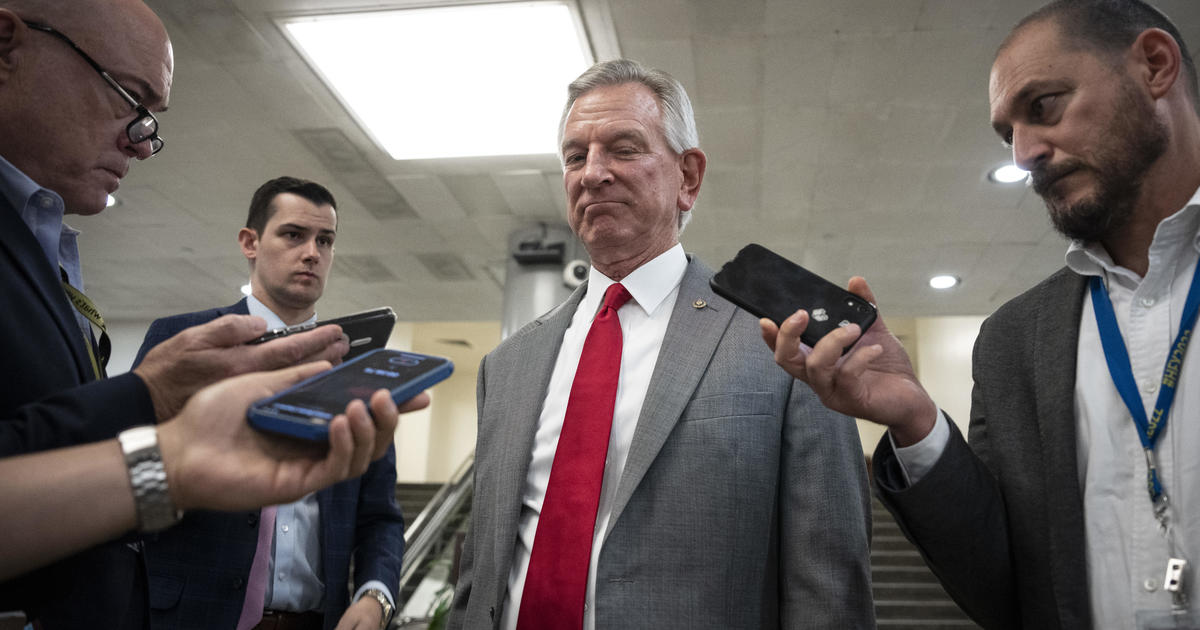The next top military officer in the U.S. has issued a warning about the significant impacts caused by a single senator’s hold on military nominations, including the loss of talented individuals.
Air Force Gen. Charles Q. Brown, nominated to become the next Chairman of the Joint Chiefs of Staff, expressed his concerns during his confirmation hearing. He stated that the hold creates challenges that not only affect current service members but also those in the future.
“The challenges presented by this hold may discourage junior officers from pursuing senior positions, as they have to balance their family responsibilities with their military careers. As a result, we will undoubtedly lose talented individuals,” said Brown.
Republican Sen. Tommy Tuberville of Alabama initiated the hold to protest the Defense Department’s policy on abortion-related travel expenses for service members in states with restrictive reproductive healthcare laws. Tuberville intends to maintain the hold until the Pentagon either changes the policy or it is passed through legislation.
As a result of Tuberville’s hold, the Marine Corps is currently operating without a Senate-confirmed commandant for the first time in 164 years. Gen. David Berger has handed over his position to assistant commandant Gen. Eric Smith, who will serve as acting commandant until confirmed by the Senate.
Similar challenges are expected for other positions on the Joint Chiefs of Staff. Over the next few months, the chief of staff of the Army, the chief of Naval Operations, and the chairman of the Joint Chiefs of Staff are required by law to step down from their posts. Additionally, Brown’s nomination as the next Chairman of the Joint Chiefs of Staff will require the Senate’s confirmation of the next Air Force Chief of Staff to replace him.
The Pentagon estimates that the hold could impact up to 650 nominations by the end of the year. “We’re looking at potential vacancies or the need for Senate confirmations in about 89% of all general and flag officer positions, at a time when we are facing increasing challenges worldwide,” said Pentagon deputy press secretary Sabrina Singh during a press briefing.
How can one senator block military nominations?
Tuberville has expressed that he is not against voting on individual nominees and would even support many of them. However, the traditional practice of approving military promotions through “unanimous consent” or voice vote, which is faster than regular floor voting, is being hindered by the hold. Democrats argue that holding individual votes is nearly impossible due to the time-consuming process when one senator’s hold is blocking the unanimous consent process.
Democratic Sen. Jack Reed, the chair of the Senate Armed Services Committee, explained that Tuberville’s hold requires the Senate to invoke cloture on each nominee. According to the Congressional Research Service, confirming the 251 pending nominations would take 668 hours or 27 days of around-the-clock voting, or 84 days of 8-hour daily voting solely on military nominations.
Senate Majority Leader Chuck Schumer criticized Tuberville for “risking military security.” He called on Republican leaders, including Minority Leader Mitch McConnell and Whip John Thune, to pressure Tuberville to relent.
Defense Secretary Lloyd Austin warned against allowing Tuberville to change the Senate’s voting process for military promotions, stating that it would be dangerous. In a letter to Sen. Elizabeth Warren, Austin wrote, “Never before has one Senator prevented the Department of Defense from managing its officer corps in this manner, and letting this hold continue would set a perilous precedent for our military, our security, and our country. The ripple effects of this unprecedented and unnecessary hold are increasingly troubling. Ultimately, the breakdown of the normal flow of leadership across the Department’s carefully cultivated promotion and transition system will breed uncertainty and confusion across the U.S. military.”
Denial of responsibility! VigourTimes is an automatic aggregator of Global media. In each content, the hyperlink to the primary source is specified. All trademarks belong to their rightful owners, and all materials to their authors. For any complaint, please reach us at – [email protected]. We will take necessary action within 24 hours.



